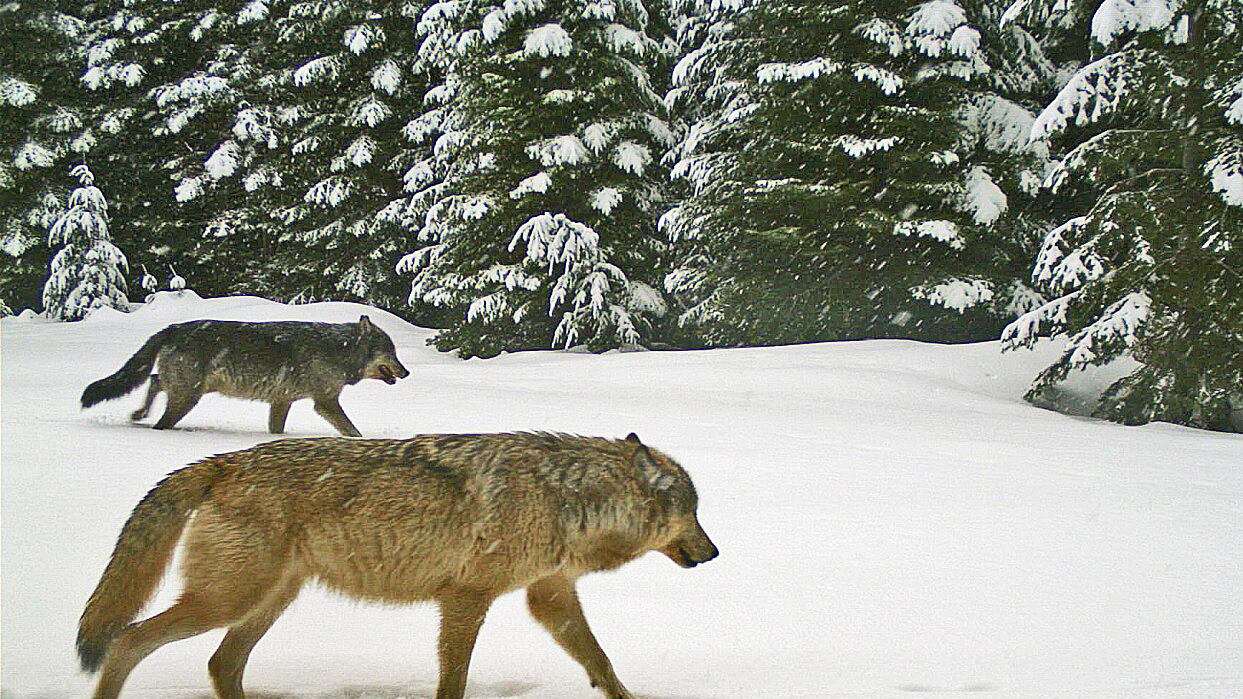A new wolf report from the Oregon Department of Fish and Wildlife has environmentalists concerned.
The report, the first since Oregon gray wolves were removed from the Endangered Species Act list in 2015, shows the population of wolves in Oregon has stalled, and the number of both breeding pairs and packs in the state declined in 2016. The current population is 112 wolves across 11 packs, a 1.8 percent increase from 2015, when there were 110 wolves.
Though the wolf population has technically increased, environmental groups are worried: Before losing protection in November 2015, the wolf population had a 33 percent increase from 2014 to 2015.
In 2016, there were 11 packs, including eight packs of breeding pairs—which is 27 percent fewer than 2015, when there were 11 breeding pairs.
Though the November 2015 decision to remove wolves from the list won in a 4-2 vote, it has remained controversial. The following month, three environmental groups filed a legal challenge to the removal.
The lawsuit, filed by Oregon Wild, Cascadia Wildlands and the Center for Biological Diversity, said that the Oregon Fish and Wildlife Commission "violated the law by failing to follow best available science and prematurely removing protections before wolves are truly recovered."
The Oregon Department of Justice ruled that the lawsuit was a moot point under House Bill 4040, which stated that the ability for wolves to repopulate was not being threatened. But in July 2016, the environmental groups were granted an appeal from the Oregon Court of Appeals to continue the legal challenge. That case is pending.
This year's report also shows a sharp increase in livestock depredation by wolves in 2016. In 2015, there were just nine incidents, compared to 24 in 2016, a 116 percent increase.
Seven wolf deaths were documented in both 2015 and 2016.
In 2015, none of these deaths came from the department, but in 2016, four wolves were killed by the department in a depredation situation where non-lethal methods proved ineffective. One wolf was killed by a farmer while the wolf was killing a sheep.
"In the years immediately before losing protections, Oregon's wolf population expanded while livestock conflict went down," said Rob Klavins, a Field Representative for Oregon Wild based in Wallowa County said in a statement. "Unfortunately, as ODFW and special interests rushed to remove protections from wolves, not only did wolf recovery stall, but wolf killing and livestock conflict increased."
While environmental groups are worried about the stall in population, an item on the ODFW's newly revised Oregon Wolf Conservation and Management Plan also raises concerns.
In a draft of the plan, which is revised every five years, one section discusses wolves as "special status game animals," a classification which came from Oregon legislators in 2009, under ORS 496.004 (9).
The classification "allows the use of controlled take through hunting and trapping (under two circumstances) in response to management concerns." It specifies that "general season hunts are not permitted."
The Center for Biological Diversity refers to the plan as a proposal "to create a sport trapping and hunting program for these iconic animals."
Last month, 19 Oregon legislators sent a letter to ODFW to urge the department to reconsider the classification, calling it a "slippery slope to an open hunting and trapping season."
A portion of the letter reads:
The proposals will go before the Oregon Fish and Wildlife Commission during a meeting on April 21 in Klamath Falls. The meeting is public.

